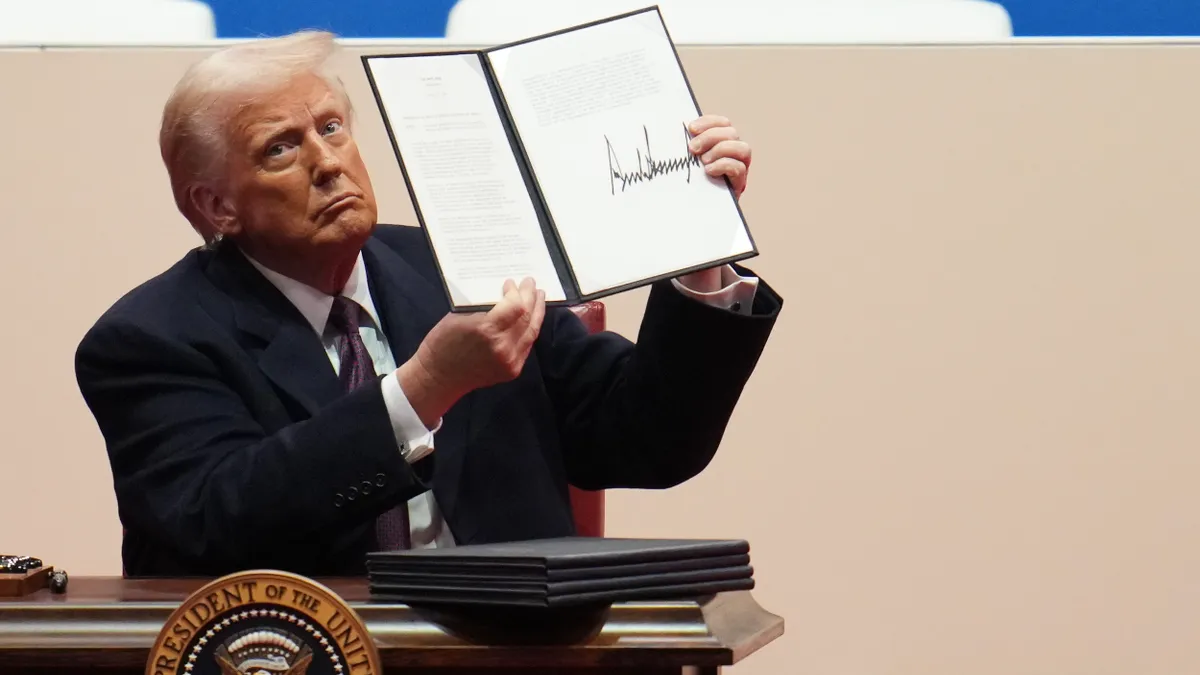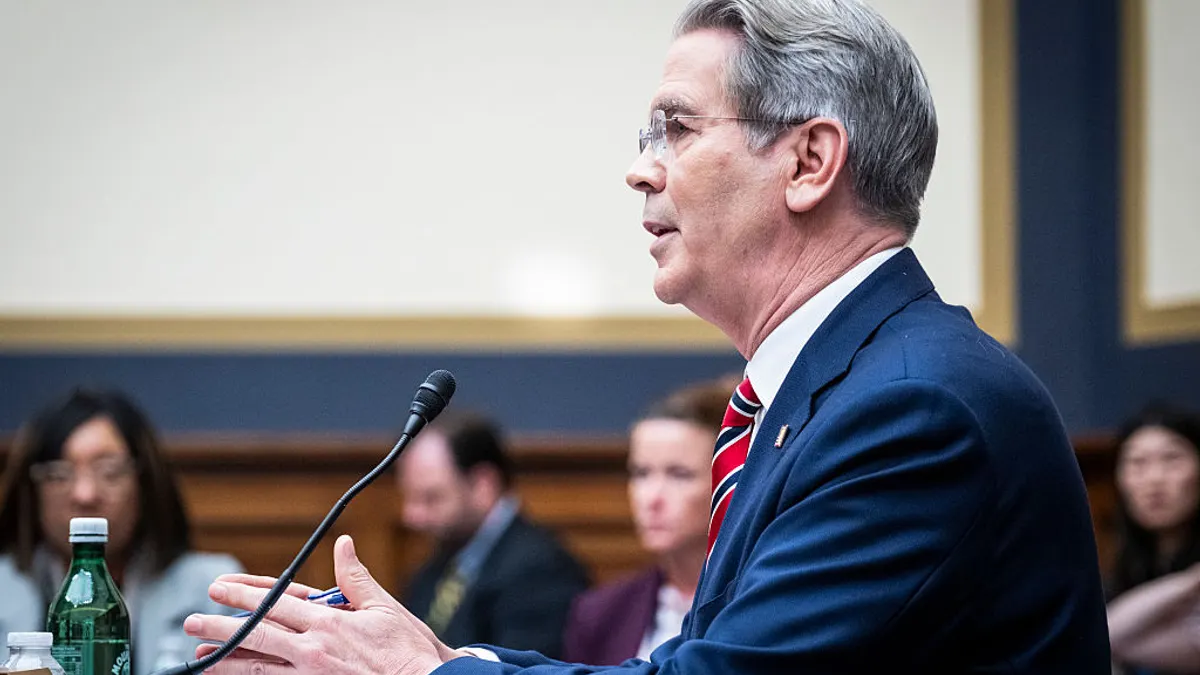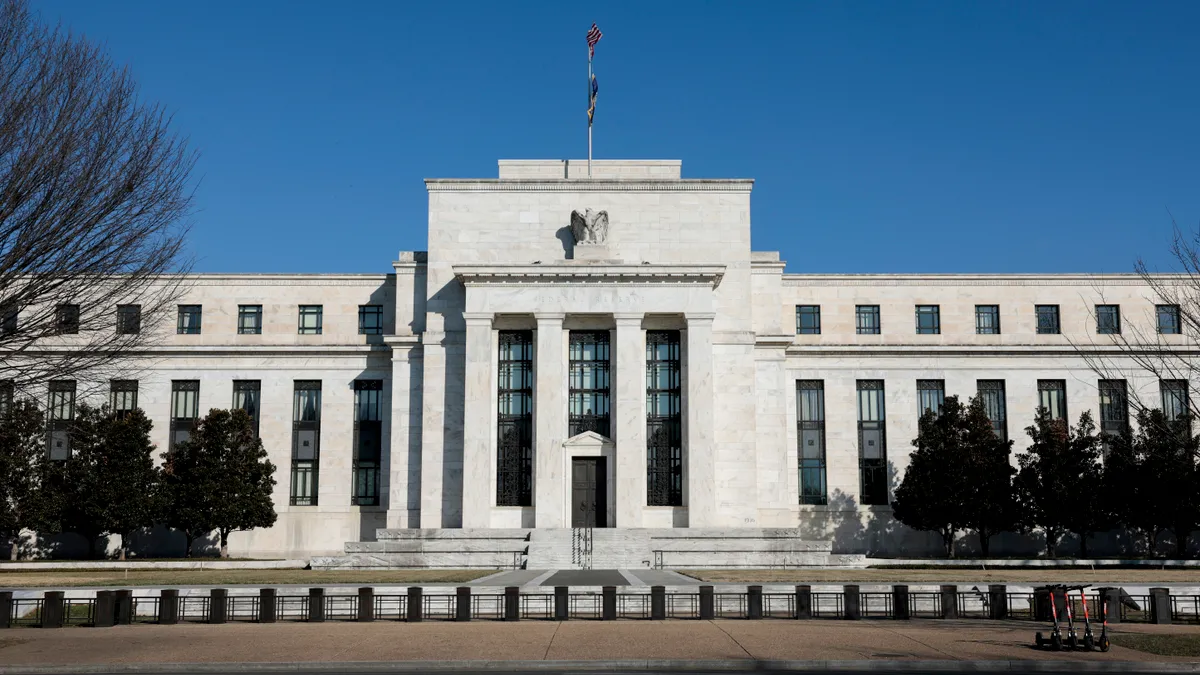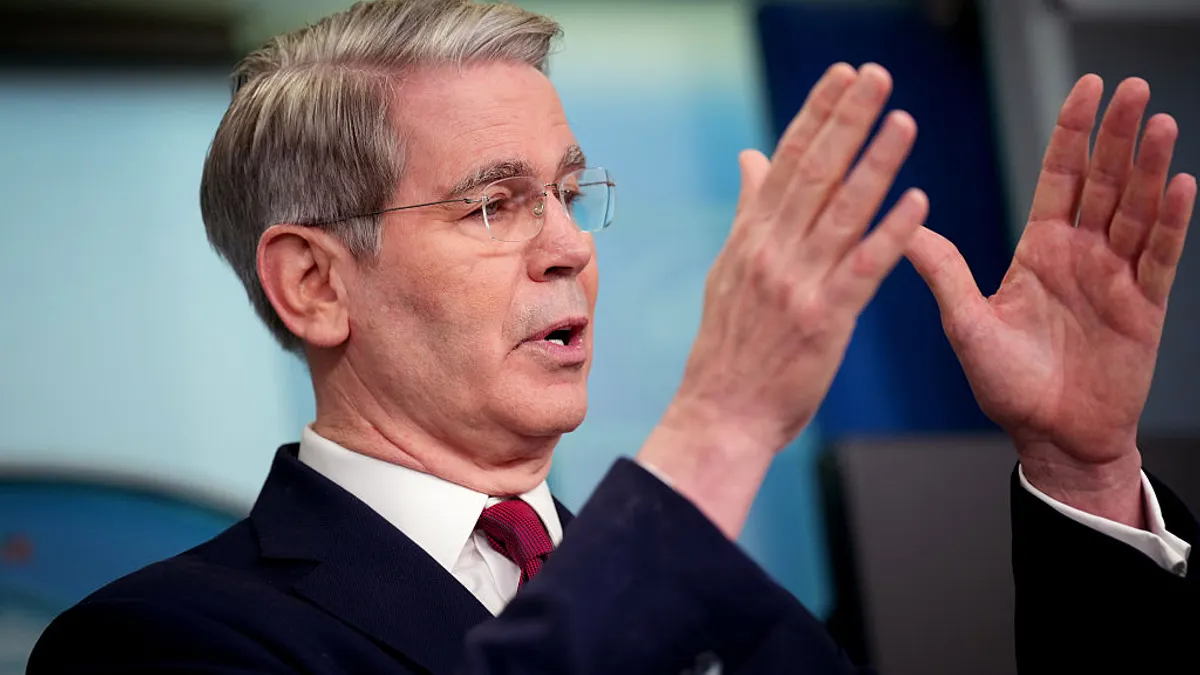The White House issued an executive order Thursday giving a boost to the digital asset industry and barring federal agencies from pursuing work on a central bank digital currency.
President Donald Trump moved quickly to support the cryptocurrency, blockchain and stablecoin spheres just days after taking office Monday, outlining his policy related to “digital financial technology.” The order calls for the creation of a digital asset market working group to make policy recommendations to his administration.
Overall, the order seeks to “support the responsible growth and use of digital assets, blockchain technology, and related technologies across all sectors of the economy.” The new policy suggests U.S. leadership internationally depends on harnessing the benefit of digital assets.
“The digital asset industry plays a crucial role in innovation and economic development in the United States, as well as our Nation’s international leadership,” according to the order.
And in what seems to be a swipe at past efforts to rein in the crypto industry, the order aims to promote individual and private-sector use of blockchain networks, the technology that underpins digital currencies, “without persecution” or “unlawful censorship.”
During the Biden administration, the Securities and Exchange Commission engaged in a long-running battle with crypto exchange Coinbase. The agency also sued Ripple in 2020, and a court ordered the digital asset issuer last year to pay a $125 million penalty. Crypto firms pushed back against what they called improper infringement on their operations.
As part of its embrace of digital assets, Trump policy strikes a positive note on stablecoins, which are digital assets directly tied to fiat currencies, such as the U.S. dollar, on a fixed basis. They are distinguished from other types of cryptocurrencies, such as bitcoin, that are not linked to known currencies and tend to be more volatile.
Specifically, the policy backs “the sovereignty of the United States dollar, including through actions to promote the development and growth of lawful and legitimate dollar-backed stablecoins worldwide.”
On the flip side, the order makes clear that any work on the U.S. issuing its own digital currency is prohibited. That’s an about-face from efforts by the Federal Reserve during the Biden administration to study the possibilities of creating a central bank digital currency as many nations consider the potential benefits of cheaper and faster cross-border payments.
The Trump order points to the possibility of a CBDC as a negative, saying they might threaten the stability of the financial system, individual privacy, and the sovereignty of the United States.” As a result, the new policy prohibits “the establishment, issuance, circulation, and use of a CBDC within the jurisdiction of the United States.”
The Trump administration sentiment echoes congressional moves to thwart any work on a CBDC, partly because of national security issues raised by such a digital asset. Meanwhile, other nations, including China, have undertaken measures to create such digital currencies.
The Trump administration policy also specifically revokes a 2022 Biden administration directive pursuing the “responsible development of digital assets” and rescinds any regulations that had been undertaken as part of that effort led by the Treasury Department. The Biden directive had also called for “international engagement” with respect to better understanding the global impact of digital assets.
The new order also seems to draw a connection between digital assets and enshrining a right to banking services, saying the policy seeks to protect and promote “fair and open access to banking services for all law-abiding individual citizens and private-sector entities alike.”
Trump’s new working group on digital assets will include participation by a bevy of administration officials from the Treasury, Homeland Security, Commerce and Justice departments, as well as the SEC and the Commodity Futures Trading Commission and other federal agencies.
That group is tasked with identifying all regulations, documents and orders affecting digital assets and suggesting within 60 days whether they should be “should be rescinded or modified, or, for items other than regulations, adopted in a regulation.” In addition, the group is under direction to recommend “regulatory and legislative proposals that advance the policies established in this order” within six months.
The group is also explicitly instructed to consider the creation a “national digital asset stockpile,” possibly including cryptocurrencies seized by federal government agencies in law enforcement.
In commenting on the new Trump policy, RBC Capital Markets analyst Daniel Perlin pointed to the significance of the new Trump approach for the broader U.S. payments and financial services systems.
“We think the changing regulatory environment is a driver of integration between DLT/blockchain, cryptocurrencies and stablecoins into the broader payments and financial services ecosystems,” he said in a Friday note to his firm’s investment clients.























